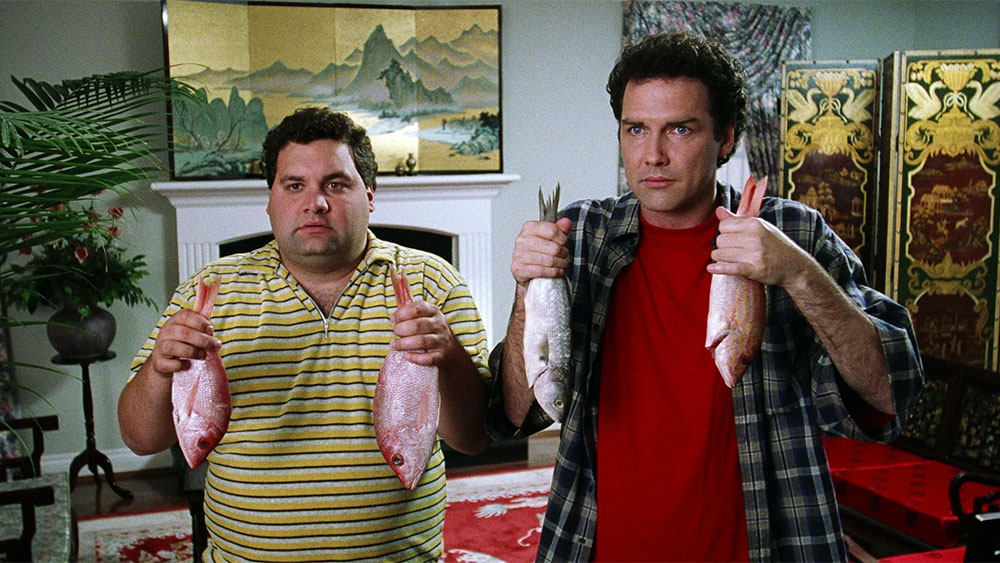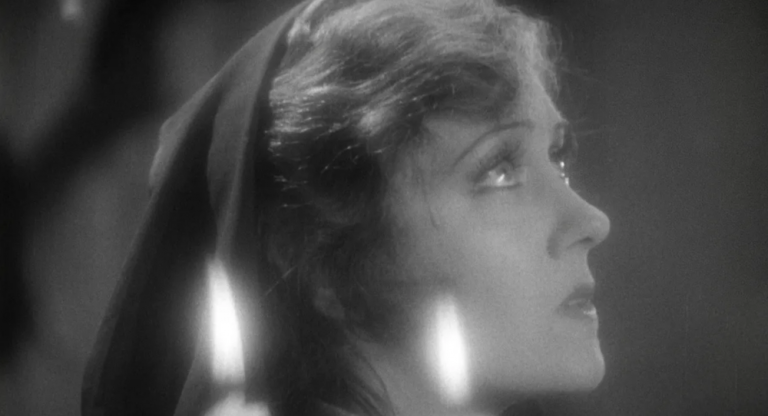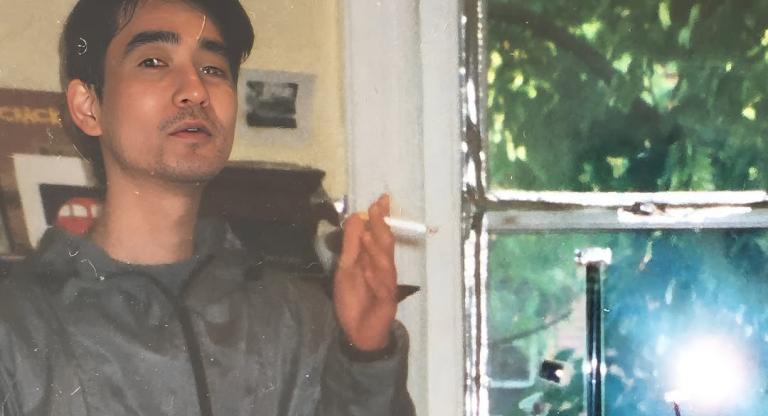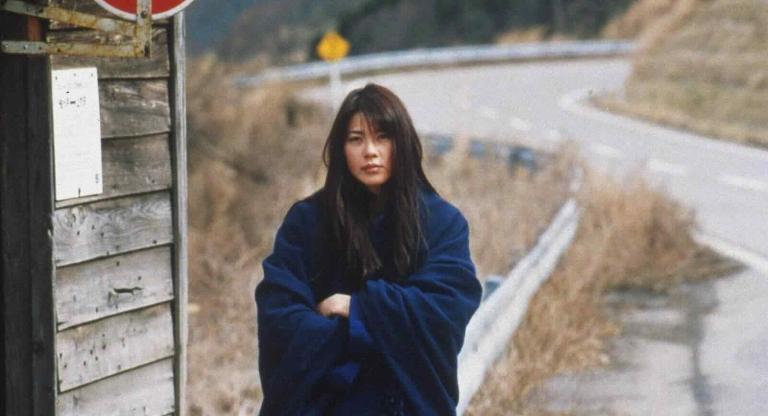This is an abridged and modified version of an essay that appears in Vinegar Syndrome’s new release of Dirty Work.
It would be disingenuous to say that the late Bob Saget is best remembered for something other than his role as Danny Tanner in the original 1987-1995 run of Full House. But as Martin Luther King Jr. said, “The arc of the moral universe is long, and it bends toward justice.” And in that spirit, there are many who believe that with time and justice, Saget will someday be recognized for his rightful place in film history as the director of one of the greatest comedy motion pictures ever made, Dirty Work (1998).
As Saget did the press rounds for his revenge-for-hire comedy, interviewers like Regis & Kathie Lee puzzled how someone known for his wholesome role on a family sitcom came to direct a crass comedy, or what prompted this apparently leftfield transition from acting to filmmaking. But before his role as “America’s Dad,” Saget had cut his teeth with a standup routine that disarmed the audience with a smiling, aw-shucks everyman persona that would turn on a dime into jokes about pedophilia and prostituting his own mother. It was through the comedy circuit that Saget first met Dirty Work star Norm Macdonald in the late ‘70s at a comedy club in Ottawa. At the time Saget was 21 years old, and Macdonald was just 17. They remained close friends throughout their lives.
Macdonald approached Saget about directing Dirty Work during Saget’s Saturday Night Live hosting gig in 1995. (In his opening monologue, Saget cheerfully announces the cancellation of Full House and relishes the opportunity to say “nipples, ass, and weiner” on television.) The host of America’s Funniest Home Videos may have seemed like an odd choice behind the camera, but even before his blue standup routine, Saget had another past life as a Temple University film grad who had won a Student Oscar for directing Through Adam's Eyes (1977), a heartfelt documentary short about his nephew with a facial deformity caused by Treacher-Collins syndrome. As Full House was ascendent in the ratings, Saget also directed his own, relatively family friendly 1990 television comedy special In the Dream State, and later made television films including For Hope (1996). Like Through Adam’s Eyes, For Hope was inspired by the story of one of his family members: two years earlier, his sister Gay Saget had died from scleroderma that had been misdiagnosed and mistreated. Regaining his sea legs as a filmmaker, Saget called it “an emotional and fulfilling project.”
To hear Saget describe the experience in retrospect, the same was likely true of his magnum opus, Dirty Work. The cast is full of veteran and relatively new comedians, ranging from Don Rickles to Chevy Chase to Chris Farley—a multigenerational family affair. Saget’s strength as a comedy filmmaker is in his understanding of the performers’ strengths and knowing how and when to let scenes play out. (There’s a sweet spot before the film-to-digital transition where good comedy directors could draw successful improv performances circumscribed by the discipline of shooting on film, rather than rolling endlessly and haphazardly.) One of the most fruitful examples of this is Rickles’s show-stopping appearance as an abusive cinema manager who delivers a classic Rickles insult routine. (The abuse continued offscreen as well: Rickles had just filmed Casino, and he told Saget that when he informed Scorsese who his new director was, “he clutched his chest.”)
The night Dirty Work was released, Saget and Macdonald drove around to multiple theaters in Los Angeles to sit incognito and spy on the audiences. To their shock, every screening was sold out with riotous crowds who fully embraced the film. Against all odds, it seemed they had a hit on their hands. And then came the phone call from the producer, not to congratulate them, but to console them: it seemed that nationally, Dirty Work had failed to draw attention away from the 1998 NBA finals and Michael Jordan and Phil Jackson’s final game with the Chicago Bulls, which remains to date the highest rated basketball game of all time. A fitting, if tragic, underdog story. And yet today, Dirty Work has returned to glory with the release of Dirty Work: The Dirtier Cut, which restores seven minutes of footage cut to secure a PG-13 rating from the original 35mm camera negative, realizing a lifelong ambition of Saget, Macdonald, and the other cast and crew members who have spent decades advocating for its release.
Macdonald died in September 2021 of leukemia, a diagnosis he had withheld from even his close friends, just after he and Saget had finished writing a sequel to Dirty Work. In an emotional solo podcast recorded shortly after Norm’s death, Saget joked that one could make a drinking game of how much he brought up Dirty Work. But “it was important,” he said. “It was important because we loved it, and he loved it.” And so it seems that there’s a common thread running through Saget’s unlikely, multi-decade filmmaking career after all: making movies with, and about, the people he loved. In Dirty Work—a movie that is ultimately about nothing if not friendship and community solidarity—the divide between Saget’s kindhearted screen persona and love of filthy comedy wasn’t as great as it seemed.
Screen Slate presents the world theatrical premiere of the new restoration of Dirty Work: The Dirtier Cut at Low Cinema, Ridgewood, May 21-27. Guest introductions include Dieringer (May 21), co-screenwriter Frank Sebastiano (May 22, plus Q&A), and restoration supervisor Oscar Becher (May 24).



